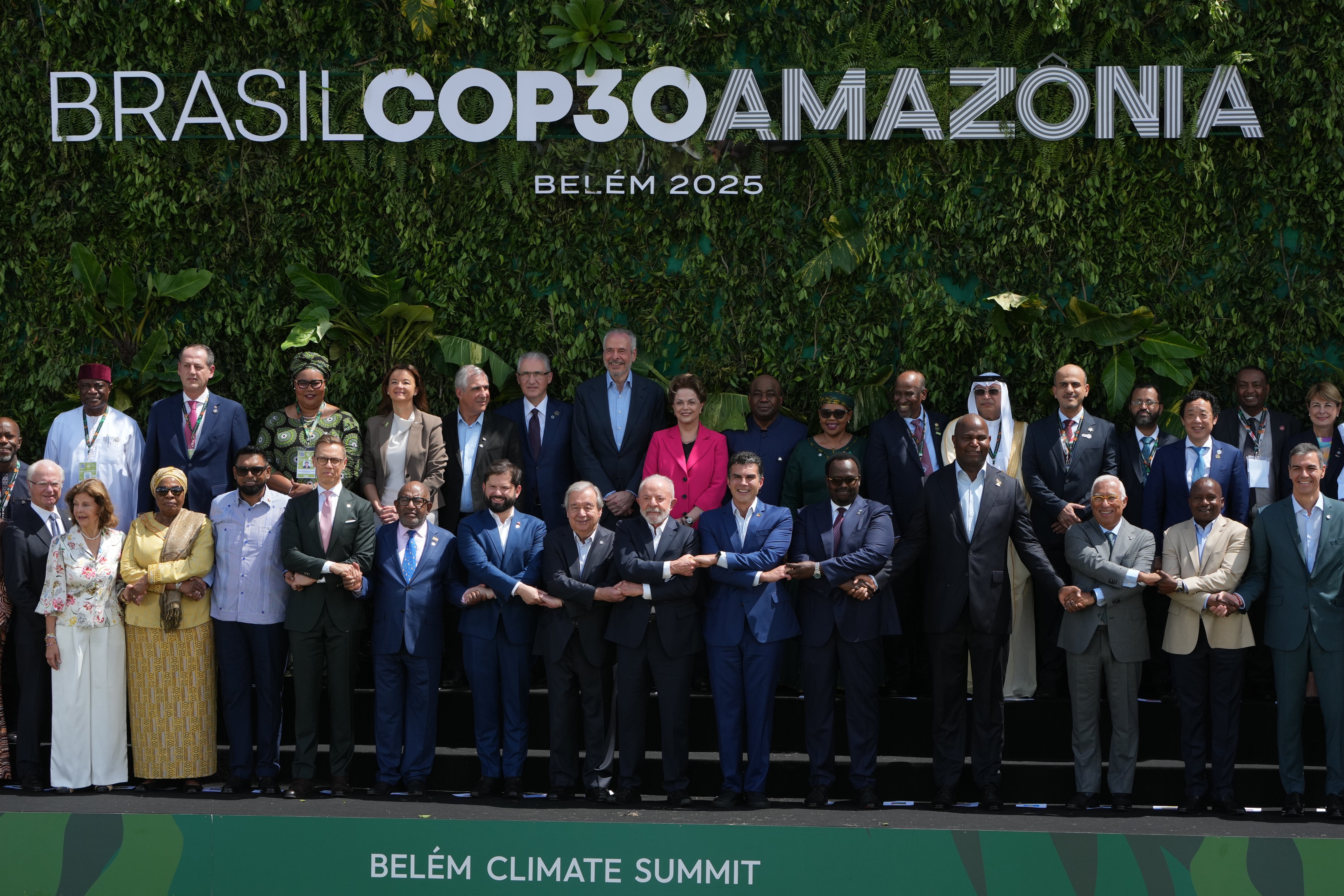A record number of fossil fuel lobbyists have been accredited to attend the UN’s Cop30 climate summit in Brazil, with more than 1,600 linked to oil, gas and coal interests taking part, new analysis shows.
The figure means roughly one in every 25 delegates in Belém represents the fossil fuel industry – the highest proportion ever recorded at the annual UN climate negotiations and a 12 per cent increase from last year’s summit in Baku, Azerbaijan.
The findings, published by the non-profit Kick Big Polluters Out (KBPO) coalition, show that industry lobbyists outnumber nearly every national delegation, with only host country Brazil sending more participants overall.
Campaigners say the scale of fossil fuel representation highlights the need for formal conflict-of-interest rules to protect the UN climate process from corporate capture.
Fossil fuel lobbyists now outnumber delegates from the 10 most climate-vulnerable countries combined and represent nearly 50 times the size of the Philippines’ delegation, even as the country recovers from destructive typhoons.
“It’s common sense that you cannot solve a problem by giving power to those who caused it,” said Jax Bongon from the non-profit IBON International in the Philippines.
“Yet three decades and 30 COPs later, more than 1,500 fossil fuel lobbyists are roaming the climate talks as if they belong here.”

The analysis, based on a line-by-line review of the UN’s provisional participant list, shows that major trade associations continue to serve as key entry points for fossil fuel influence. The International Emissions Trading Association brought 60 representatives, while the International Chamber of Commerce and the Brazilian Business Council for Sustainable Development also sent large delegations.
At least 164 lobbyists were registered under government badges, granting them access to closed-door sessions. France’s official delegation includes 22 fossil fuel representatives, Japan’s delegation lists 33, and Norway brought 17.
Campaigners said the scale of representation undermines the credibility of the talks, which are meant to accelerate action on phasing out fossil fuels and scaling up finance for vulnerable nations.
“Cop30 has become a marketplace for corporate greenwashing, not a platform for climate justice,” said Ranjana Giri from the Asia Pacific Forum on Women, Law and Development. “Behind the pledges are false solutions that protect profit rather than people.”
However, in response, the Brazilian presidency hosting Cop30 said the summit “reflects the diversity of Brazilian society.”
“The Conference will be attended by different sectors of civil society and the business community, as the ecological transition requires everyone's involvement,” a spokesperson told The Independent.
“Brazil has a tradition of promoting broad social participation in international forums, and this principle continues to guide the organisation of COP30, with a focus on climate justice and inclusion.”
The UN climate secretariat introduced new disclosure requirements this year for non-government participants, compelling them to state their affiliations and funding sources. However, the rules do not apply to delegates registered under government or “party overflow” badges – a gap that KBPO says allows companies to continue influencing negotiations from within national delegations.
UNFCCC spokesperson said: “As of 2023, measures have been taken to enhance transparency so that it's clearer who participates at COP. We have done this in consultation with civil society and other stakeholders, who have welcomed them in our discussions.”
“Just as no single COP can be expected to solve the climate crisis overnight, making further concrete improvements is an ongoing journey, noting that national governments have sole authority to decide who is in their delegations."
The findings come as 2025 is projected to be among the hottest years on record, with global carbon emissions still rising and several countries facing extreme weather linked to climate change.
Since last year’s COP in Baku, oil and gas firms have approved nearly $250bn in new fossil fuel projects, according to research cited by the coalition.
Host country Brazil has billed Cop30 as an “implementation COP” focused on translating commitments into action, including on climate finance and adaptation. But the extent of industry access has raised concerns among campaigners that progress on phasing out fossil fuels could again be weakened by lobbying pressure.
“If Cop30 is indeed the COP of truth, the Presidency and the UNFCCC Secretariat should now commit to reviewing and strengthening participant disclosure rules ahead of future summits: it is time to ensure integrity and accountability to restore trust,” Brice Böhmer, Climate and Environment Lead at Transparency International, said.







